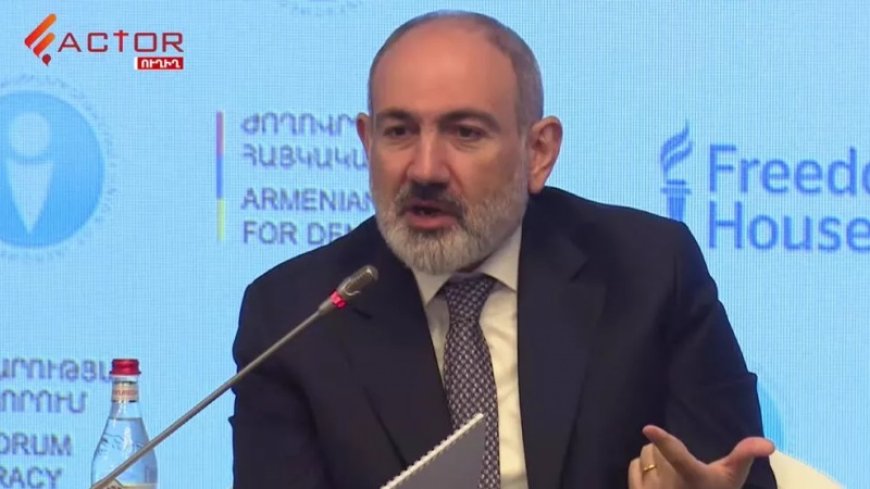The readiness of the European Union (EU) to engage in discussions about Armenia's potential membership remains uncertain, according to Armenian Prime Minister Nikol Pashinyan. Speaking at the 3rd Armenian Democracy Forum in Yerevan, Pashinyan expressed his inability to provide a definitive answer on the EU's stance towards Armenia's membership aspirations.
"I announced from the Council of Europe chair that Armenia is ready to be as close to the EU as the EU considers it possible," Pashinyan stated. "Now the question is: how ready is the EU? Can I answer that question today? No, I cannot, because processes are taking place in the EU today, which we must evaluate. Elections are taking place in the EU, the results of which at least raise questions," he emphasized.
On June 21, the Armenian National Assembly held hearings regarding a proposed referendum on applying for EU membership. The hearings were initiated by four extra-parliamentary groups: the "For the Republic" party, the "European Party of Armenia," the "Republic" party, and the "Free Citizen" NGO, united under the "Platform of Democratic Forces."
In response to a question from Tigran Khzmalyan, chairman of the "European Party of Armenia," Pashinyan reiterated that Armenia's government has made its intentions clear at the highest level. The "New Partnership Agenda" with the EU, according to Pashinyan, serves as a significant political signal in this context.
"If I thought that the people of Armenia did not support the idea of EU membership, I would not have made such a statement from the Council of Europe chair. Or if I made such a statement, knowing that the Armenian people do not support that idea, then I would not be the Prime Minister of the Republic of Armenia at least after that statement," he assured.
During the National Assembly hearings, the initiators urged the Armenian government to hold a referendum on joining the EU within 3-4 months. Aram Sargsyan, chairman of the "Republic" party, even proposed a specific date—September 21, which coincides with Armenia's Independence Day.
As Armenia navigates its foreign policy and strategic alliances, the question of EU membership remains a pivotal issue. The outcome of the EU elections and subsequent political shifts within Europe will play a crucial role in determining the future of Armenia-EU relations. In the meantime, Armenian authorities continue to advocate for closer ties and integration with the EU, reflecting the aspirations of many within the nation.














































